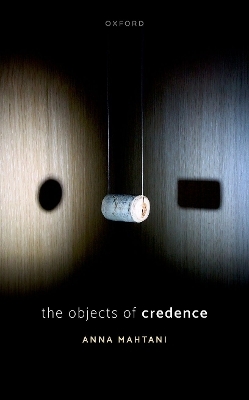
The Objects of Credence
Oxford University Press (Verlag)
978-0-19-884789-2 (ISBN)
The credence framework is used by scientists and social scientists in almost all disciplines, including economics and political theory, and it underpins policy choice in healthcare, transport, education, and numerous other areas. It is hard to overestimate its importance. On this framework, credences (or probabilities) are assigned to certain objects--but what objects? The Objects of Credence argues that these objects are 'opaque' or 'hyperintensional': to adapt an example from Frege, a person's credence that Hesperus ('the evening star') is bright might be different from their credence that Phosphorus ('the morning star') is bright, if that person does not know that Hesperus and Phosphorus are in fact one and the same. Our credences are not about objects in themselves, but rather about objects under a designator. Anna Mahtani demonstrates that this point has far-reaching implications for users of the credence framework: there are implications for principles of rationality, including deference principles and the Principal Principle, and practical implications for decision theory and welfare economics. There are also implications for how the framework should be interpreted; this book explores both two-dimensionalism and impossible worlds, and assimilating either into the credence framework brings further significant repercussions. The Objects of Credence therefore brings to light a simple yet deep insight with profound theoretical and policy implications. There are concepts which need to be re-thought, moves which turn out to be invalid, and principles which need to be rejected or transformed. The central aim is to give those who use the credence framework an awareness of the insight and its wide-reaching implications.
Anna Mahtani went to Leeds University as an undergraduate to study English Literature, but discovered philosophy while there and switched her degree. She went on to study at Oxford and Birkbeck before moving to Sheffield to write a PhD on the epistemic theory of vagueness. She then took up a British Academy post-doctoral position at Oxford, before moving to the LSE in 2013. In 2015, she won a Philip Leverhulme Prize. She has published on a wide range of topics, including vagueness, imaginative resistance, formal epistemology, and welfare economics.
1: Introduction
2: Propositions
3: The Credence Framework
4: Credence Claims are Opaque
5: Implications for Rationality
6: Practical Implications
7: States as Metaphysically Possible Worlds
8: States as Something Else
9: Conclusion
| Erscheinungsdatum | 30.01.2024 |
|---|---|
| Verlagsort | Oxford |
| Sprache | englisch |
| Maße | 140 x 222 mm |
| Gewicht | 388 g |
| Themenwelt | Geisteswissenschaften ► Philosophie ► Erkenntnistheorie / Wissenschaftstheorie |
| Naturwissenschaften | |
| Wirtschaft ► Allgemeines / Lexika | |
| Wirtschaft ► Volkswirtschaftslehre | |
| ISBN-10 | 0-19-884789-0 / 0198847890 |
| ISBN-13 | 978-0-19-884789-2 / 9780198847892 |
| Zustand | Neuware |
| Informationen gemäß Produktsicherheitsverordnung (GPSR) | |
| Haben Sie eine Frage zum Produkt? |
aus dem Bereich

![Was heißt Denken?. Vorlesung Wintersemester 1951/52. [Was bedeutet das alles?] - Martin Heidegger](/media/113619842)
